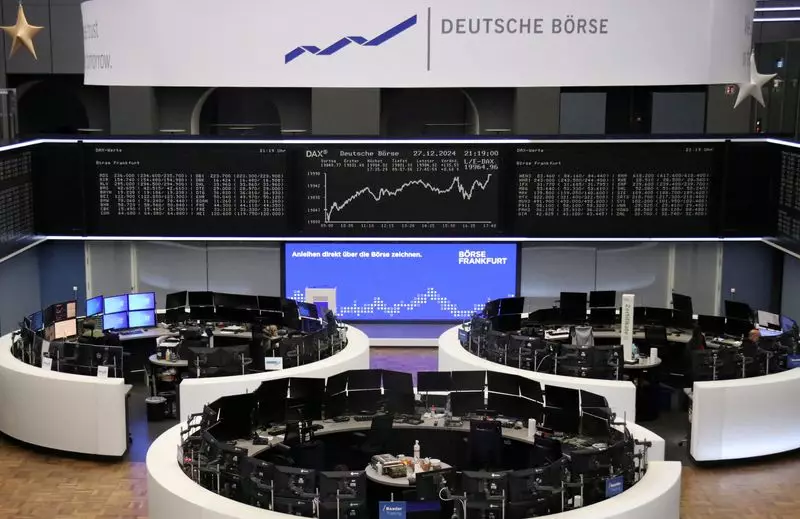On a seemingly typical Monday, European equity markets experienced a downturn, mirroring the trend set by Wall Street. Investors pulled back as government bond yields remained stubbornly high, shaking up their confidence in equities just before the year-end. The pan-European STOXX 600 index recorded a drop of 0.6%, primarily dragged down by losses in the technology and healthcare sectors. With the New Year holiday approaching, trading volumes fell significantly, reflecting a cautious stance among traders and investors alike.
The yield on the 10-year German bund hovered near its highest level since mid-November, with its trajectory influenced by increasing U.S. Treasury yields. Investors are grappling with uncertainty regarding monetary policy shifts in the coming year, exacerbated by inflationary concerns under the shadow of a potential Trump presidency. This landscape has contributed to a nuanced investor sentiment, marked by hesitance and an inclination to withdraw from equities, resulting in broader market declines across Europe.
Despite the recent pullback, the STOXX 600 remains on track for an annual increase of 5.9%. German stocks have emerged as the leaders in regional performance, enjoying a substantial boost while French shares have struggled, slated for a decline. In comparison, the S&P 500 has surged by an impressive 25%, driven by significant interest rate cuts from the Federal Reserve and a substantial increase in technology investments centered around artificial intelligence. Analysts remark that the disparity in performance underscores the resilience of tech sectors in driving market momentum on Wall Street.
The mixed performance of various sectors paints a complex picture. The German DAX index dipped slightly by 0.4%, but it is anticipated to conclude the year with an extraordinary 19% gain, making it the standout performer among major European indices. Conversely, the French CAC 40 is expected to close the year down by about 2.5%, attributed to fears surrounding the nation’s growing fiscal deficit and ongoing political instability. Within specific sectors, food and beverages, alongside the automotive industry, are projected to be the weakest performers, while banks are anticipated to finish strong.
In corporate news, significant movements were observed as well. Shares of Siemens Healthineers fell by 1.7% following reports that Siemens AG is reassessing its majority stake in its medical technology arm. Meanwhile, agricultural trading company BayWa experienced a remarkable surge of 17% after announcing a restructuring deal with its major stakeholders, highlighting the ever-evolving landscape of corporate strategies in response to market demands.
As Europe prepares for the New Year, the current market sentiment reflects the complexities of navigating uncertain economic waters. With high yields and macroeconomic factors influencing investor strategies, the focus now shifts to the evolving landscape of both European and international markets in 2024. Investors will be on the lookout for further developments in monetary policy and economic indicators, which will surely shape the trajectory of stock markets in the coming months.

